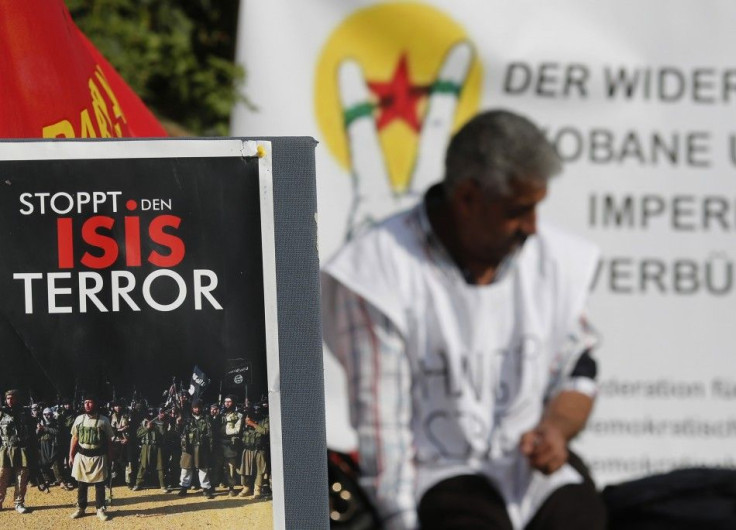Islamic State defectors need protection and rehabilitation, says think-tank

Even as the alliance led by the United States continues its bombing offensive against the Islamic State, there are fresh calls to stop showing hostility to ISIS fighters, but assuage defectors with a friendly approach to deflate the terror group.
A report published by the International Centre for the Study of Radicalisation and Political Violence, titled "Victims, Perpetrators, Assets: the Narrative of Islamic State Defectors,” calls for removing the legal “disincentives” that prevent ISIS fighters from speaking out about their experiences.
Instead, governments should provide defectors with “opportunities to speak out; assist them in resettlement and ensure their safety; and remove legal disincentives that prevent them from going public.”
“It seems to me to be wrong that if someone is helping to deter people to join ISIS by casting a negative light on the group, that he is then being punished for it,” Peter Neumann, ICSR director and author of the report told The Guardian.
Hype and reality
The report cites different reasons that drive an Islamic State fighter to jump ship, from mere boredom to the lack of luxury cars. The paper offers testimonies of 58 former militants, who describe the uncomfortable conditions, in-fighting, corruption, brutality and forced suicide missions as some of the reasons that led them to leave.
The report was born out of an episode of a disillusioned British IS fighter contacting the ICSR in August 2014. The fighter explained why he and others joined ISIS: “We saw the videos. They hyped us up.” But what they experienced in reality was different. “Muslims are fighting Muslims,” he said. “Assad’s forgotten about.”
The former insiders reveal that many ISIS militants are fighting Sunni rebels, rather than fighting Syrian president Bashar al-Assad. This was the most common reason for deserting the terror outfit, the report claimed.
Another reason was the “harsh and disappointing” life under ISIS. Contrary to the fantasies that a jihadist's life is lucrative and laden with rewards, the fighters “quickly realised that none of the luxury goods and cars that they had been promised would materialise," said the report.
Many fighters, especially those from the West, also found it hard to cope with shortages in electricity and basic items. They also found that combat lacked the thrill and failed to meet their expectations of action and heroism, with many calling their duties “dull.”
Adding to it was the feeling among foreign fighters that they are being “exploited” and treated like cannon-fodder, exemplified by the case of Melbourne teenager and wannabe suicide bomber, Jake Bilardi.
Afraid to quit
But the report reminds that defections from ISIS are considered “acts of apostasy” and require tremendous psychological will-power because it is a reversal of the severe brainwashing administered by the organisation. The report says many ISIS members in Syria and Iraq no longer believe in its cause, but are too afraid to quit.
Most foreign fighters face suspicion and hostility in their home countries, which are not ready to accept them. Most of them have their passports cancelled and citizenships annulled. With governments viewing them as “sleepers” or “dangerous returnees,” many fighters have to fight criminal charges slapped against them. Any admission of involvement with ISIS will invite lengthy prison sentence.
The report calls for a holistic approach to dealing with ISIS deserters, and says that even if they are former terrorists, their stories are vital in the propaganda war to bust the ISIS myth of unity and in tearing away its hypocrisy and lies.
For feedback/comments, contact the writer at feedback@ibtimes.com.au or let us know what you think below.





















